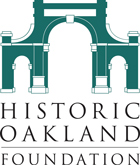Virtual Field Trips
Bring Atlanta history to life through the stories and experiences of residents at rest with a virtual tour of Oakland Cemetery. Led by an Oakland educator in real-time, these virtual field trips are highly interactive and tied to Georgia performance standards.
Each program features a site introduction, a deep dive into Atlanta history as experienced by Oakland residents, and an opportunity for students to step into the past with a “Choose Your Own Adventure” critical thinking exercise.
The virtual field trip includes teacher access to post-program STEAM activities. Each activity is designed for individual students at home, but can be used in classroom learning. The program and post-program activities will feature primary and secondary sources.

Program Fees
Program fees for a virtual field trip are $60 for a 40-minute program for one class (10 to 30 students). Add on an additional classroom for the same time/same program for $50. Payment is due upon confirmation of the program and must be received at least one week before the program. Free for Title I schools.
Length
40 minutes, including time for questions
Presentation Platforms
Presentations are available through Zoom (preferred) or Microsoft Teams. Teachers are encouraged to complete a ten-minute technology set-up session prior to the virtual tour to troubleshoot unforeseen connectivity issues. Teachers who opt out of technology set-up session will not be issued refunds for user issues during the virtual tour.
Teachers must be in attendance throughout the virtual tour whether they are in person with their students or if their class is remote and connected through virtual learning.
Cancellation policy
To receive a full refund, we require one week’s notice for all cancellations.
Book a program
Virtual tours are available Monday through Friday from 9:00 a.m. to 3:00 p.m. Email Education Director Charvis Buckholts to reserve your virtual field trip at cbuckholts@oaklandcemetery.com.
Please note that programs must be booked at least two weeks in advance.
Virtual Field Trip Topics
Choose your topic from the selection of programs listed below.
Atlanta Trailblazers (Grades 2 and 5)
The early 20th century was a period of great change and growth in Atlanta. Innovative entrepreneurs adopted new technologies to make Atlanta a clear business leader in the South. Atlanta’s Black citizens created dynamic communities, businesses, and cultural organizations in neighborhoods like Auburn Avenue. Men, women, and children of all ages and backgrounds fought for progressive social reform. Atlantans made this progress possible through actions, both big and small. There’s a word for these individuals – trailblazers. This 40-minute presentation takes students on a trip through time to explore Atlanta in the early 20th century and learn the stories of trailblazers who created new paths for others to follow.
Standards: SS2H1: Describe the lives and contributions of historical figures in Georgia history. SS2CG3: Give examples of how the historical figures in SS2H1 demonstrate positive citizenship traits such as: honesty, dependability, trustworthiness, honor, civility, good sportsmanship, patience, and compassion.
Standards: SS5H1 Describe how life changed in America at the turn of the century. SS5H2 Describe U.S. involvement in World War I and post-World War I America.
Immigration, Innovation, and Exchange: Atlanta in Transition (Grade 5)
A railroad town turned Confederate hub, Atlanta rose from the ashes of the Civil War to become the state capital, an economic powerhouse, and a destination for education. Discover the stories behind this city in flux by meeting some of its most prominent residents: immigrant entrepreneur Jacob Elsas, Black political boss Henry Rucker, real estate builder Joel Hurt, groundbreaking politician William Finch, and suffragist Rebecca Douglas Lowe.
Standards: SS5H1 Describe how life changed in America at the turn of the century.
Reconstruction and Rights (Grade 8)
In the years following the Civil War, Atlanta became a destination for emancipated African Americans looking for education, employment, and aid. These new arrivals found community in the schools, worship houses, organizations, and businesses developed by Black Atlantans. Many experienced freedoms for the first time only to see it chipped away by discriminatory laws and violent white supremacist groups. Discover the impact of Reconstruction in Atlanta through the stories of groundbreaking politician William Finch, Morris Brown founder Bishop Wesley John Gaines, Black political boss Henry Rucker, philanthropist Carrie Steele Logan, and many more.
Standards: SS8H6 Analyze the impact of Reconstruction on Georgia.
Deconstructing the New South (Grade 8)
Southern boosters envisioned a great future for the South achieved through industrialization, urbanization, and social growth. The “New South” vision, a term coined by journalist Henry Grady, guided social and political change in the late 19th century. But while industries modernized and reconciliation efforts united former-Civil War foes, African Americans suffered under the yoke of segregation and disenfranchisement. Jewish communities were ostracized as anti-Semitism became more widely accepted as evident in the Leo Frank trial. In efforts to move on from the “Old South,” New South embraced the Lost Cause interpretation of the Civil War. This virtual tour deconstructs the New South vision and examines the destruction it caused in the name of change.
Standards: SS8H7 Evaluate key political, social, and economic changes that occurred in Georgia during the New South Era.
